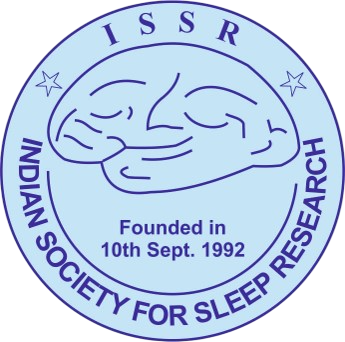
“I was not able to sleep last night; you were snoring so loud”
“No, I don’t snore, you are not saying right.”
Everyone who snores has had to deal with this issue at some point in their lives.
So, let’s talk about what snoring is and why it occurs.
In simple words, snoring is a sound one makes while sleeping. Scientifically, snoring is a breathing sound that occurs when air moves past calm tissues in the throat, causing the tissues to vibrate when one breathes.
According to the American Academy of Otolaryngology, up to 45% of American adults snore and 25% do it on a regular basis.
Snoring is common, can disturb sleep, occurs more frequently in men than women, and can get worse with age.
Why do people snore?
Snoring can occur because of a number of reasons and influences. When a person breathes, the air is pushed through the nose, mouth, and throat, and snoring occurs when the flow of air through the mouth and nose is congested, which is rattling and shaking of tissues.
Some common reasons which block the airway and cause snoring are:
• Nasal Airways: The nasal airway is choked either due to allergies, infection, or difficulties like a prolonged nasal blocking barrier between the nostrils, which is known as a deviated nasal septum, which can block the airways and cause snoring.
• Alcohol: People who drink alcohol snore more than those who do not, because alcohol relaxes the throat muscles that causing snoring. Drinking alcohol right before bedtime can increase snoring.
• Lack of Sleep – Sleep deficit is another factor of snoring as similar to Alcohol, lack of sleep can also relax the throat muscles too much.
• Mouth Anatomy – People with distended tissues and tonsils that limit airflow generally produce slight snores.
• Obesity – People who are slightly overweight have a habit of snoring more, as they might have additional tissues in the back of their throats that may thin the airways.
• Sleeping Position: Sleeping on the back can be a source of the sound, as can using a too-soft or too-big pillow.
Symptoms of Snoring
Snoring is an indication of sleep apnea, a sleeping disorder called Obstructive Sleep Apnea (OSA). And the symptoms of snoring are:
• Consistent snoring, more than 3-4 times a week
• Heavy and loud snoring sounds
• Worry in sleep
• Excessive daytime sleep
• Morning headaches
• Chest pain at night
• Painful throat in the morning
• High Blood pressure
• High recurrent nighttime urination
• Obesity
• Blocking at night or breathing breaks during sleep
Risk Factor
Snoring can be really dangerous at times, and the danger can rise with age. Some of the risk factors which may enhance snoring are,
• Having a thin airway – Some people have enormous tonsils, adenoids, or long soft palates, which can slim the airways.
• Alcohol – A person who drinks alcohol is more likely to snore than someone who does not.
• Men – Males are more probable to snore or have OSA than women
• Obesity – Bulky people have more danger to have snoring problems.
• Family history – Sometimes genetics is a risk factor for OSA
Complications
Snoring can be common and simple as well as occasionally risky. The risk level of snoring depends upon its types, severity and frequency.
• Light or Irregular snoring
Irregular snoring is regular and common with some people and doesn’t need much medical help. The person sleeping next to you might have problems, other than that light snoring is usual.
• Restlessness during night
Primary snoring happens more than 3 times a week and the occurrence can cause poor night sleep, however, this is not much of a health worry as snoring this much will not affect the health much or cause obstruction but this can make one feel giddy in the morning or tired at daytime, which can disturb the quality of life.
• Sleeping Disorder
It’s time to see a doctor when most of the symptoms of snoring can be troublesome for your health. OSA can cause major problems, affect a person’s sleep, and even cause serious health matters like high blood pressure, diabetes, stroke, or depression. One can have the danger of losing one life during sleep if the breath gets obstructed and remains ignored.
When is the correct time to see a doctor?
For primary snoring or OSA, one can see a doctor at either time, although when one sees a few of the given signs, it is better to visit a doctor.
• Snoring more than 3 times a week
• Heavy and loud snoring
• Choking during sleep
• High blood pressure
• Rise in snoring sounds while sleeping
Preventions
Lifestyle plays annn essential role when any medical problem needs avoidance, simple alterations in the lifestyle can really help in retaining a healthy lifestyle and avoiding similar concerns.
Home therapies for snoring problems
• Sleeping at the same time every night
• Sleeping on one side
• Avoiding Alcohol
• Healthy diet, the perfect weight
• Put on nasal strips to the bridge of the nose
• Right pillow
• Rising the head of your bed and relaxing position while sleeping
Treatments
Although prevention and care might help in decreasing snoring problems or ending them when light snoring happens, recurrent snoring and OSA require treatment.
The doctor, after reviewing the symptoms and reasons for your snoring, will also implement a physical examination to propose a flawless treatment for snoring. Before providing treatment for such concerns, it is vital for the doctor to comprehend the family history and sleep cycle of the patient.
The doctor can advise, a few or any of the following actions to the person,
• Oral appliances: minor plastic devices that are form-fitting dental mouthpieces are provided to help in determining the location of the jaw, tongue, and soft palate to keep the air passage open to avoid snoring.
• Continuous Positive Airway Pressure (CPAP)
Masks are common practice following COVID, and we are certainly accustomed to them, so CPAP is not the firm trick when it comes to snoring treatment. CPAP is a treatment that involves wearing a mask on the face and covering the nose and mouth, while one sleeps. It helps in treating sleep apnea and reduces snoring by blowing air into the airways while one sleeps.
• Surgery: Severe snoring can be treated with the aid of surgery. The doctor might eliminate or shrink the tissues in the throat or make the soft palate harder. There is various technique of surgery, some of which are –
1. Unulopalatopharyngoplasty (UPPP), where one is given general anesthesia and the surgeon constricts the extra tissues from the throat.
2. Maxillomandibular advancement (MMA), which involves moving the upper and lower jaws forward and aids in airway opening.
3. Hypoglossal nerve stimulation is a new technique that works by applying a stimulus to the nerve that controls the forward movement of the tongue so the tongue does not block the airway when one takes a breath.
Snoring and Sleep Apnea – How to Differentiate
Snoring is a sign of sleep apnea, but snoring is different from it.
Both snoring and sleep apnea can disturb sleep, but sleep apnea can cause more problems than snoring does. Sleep apnea not only interrupts the person sleeping next to you but also wakes you up numerous times at night, often gasping for air. One can be alert or not be aware of the awakening.
Snoring will not always cause daytime sleepiness, heart disease, or stroke, but sleep apnea has a greater likelihood of causing such concerns.
There is a risk that if a person has heart disease, he or she will have sleep apnea. Even though people say, that sleep death is likely because of a shortage of breathing or choking during sleep, it is typically false because Dr. Pervez says, ‘The person’s mind wakes him up so that he can take a breath.’
Frequently Asked Questions about Snoring
- Is snoring a problem?
If you have recurrent snoring issues and it disrupts your sleep cycle and your partner’s sleep, then it can be difficult and needs care. Snoring is normal at times when it occurs less than three times a week.
- Does snoring affect your partner’s sleep as well?
Yes, snoring can be a problem if it disturbs your partner’s sleep. But there are ways to solve the problem, such as,
- Let your partner identify, they snore
- Put on positive changes in your lifestyle
- Try snoring devices or nasal spray
- Witness and comprehend, and consult a doctor if it’s serious.
- Is loud and frequent snoring a serious problem?
Snoring can be bothersome, but it is not a permanent issue. It is time to consult a doctor if snoring occurs more than three times a week, is very loud, and causes breathing or choking issues.
4. How can snoring be treated?
The article includes home and medical remedies for snoring through which snoring can be treated. Even when snoring is challenging and needs medical assistance, it can be treated with the help of surgery and medicines.
Concluding, snoring can be common and even risky at times, but basic hindrances or actions during severity can help in fighting the same. Snoring is not troublesome if a person is aware and cautious.


